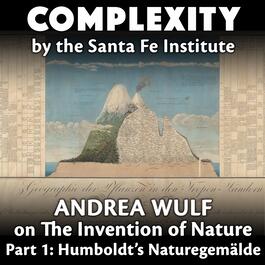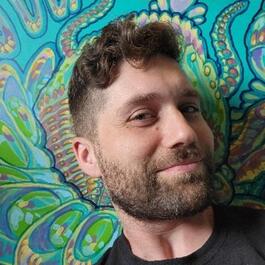
Andrea Wulf on The Invention of Nature, Part 1: Humboldt's Naturegemälde
When you hear the word “nature,” what comes to mind? Chances are, if you are listening to this in the 21st Century, the image is one of a vast, interconnected, living network — one in which you and your fellow human beings play a complicated part. And yet, this is a relatively recent way of thinking for the modern West. It takes a special kind of thinker — and a special kind of life — to find and recognize the patterns that connect different environments around the planet. Until the pioneering research of 19th-Century explorer Alexander von Humboldt, no one had ever noticed global similarities between the climates and creatures at a given altitude, on different continents. His legendary work popularized not only a new portrait of the world and its complex inter-relatedness, but innovated vastly influential ways of doing and communicating science — including novel data visualization and interdisciplinary international collaboration methods. Von Humboldt, though, would bristle at the notion that he stands alone as some Great Man in history, preferring to acknowledge not just the inspiration that he drew from poets and philosophers, but also the Indigenous peoples he met and worked with in his travels. His theories beg to be examined in light of the aesthetic sensibilities with which they were communicated, as well as their sociopolitical and philosophical impact — including how they fertilized the Transcendentalist Romantics, founded what we now call ecology, and exemplified a synthesis of Art and Science at which our age of vast but fragmented knowledge can only marvel. Welcome to COMPLEXITY, the official podcast of the Santa Fe Institute. I’m your host, Michael Garfield, and every other week we’ll bring you with us for far-ranging conversations with our worldwide network of rigorous researchers developing new frameworks to explain the deepest mysteries of the universe. This week and next, we have a special two-part conversation for you with SFI Miller Scholar Andrea Wulf, author of six books — including the New York Times Bestseller The Invention of Nature: Alexander von Humboldt’s New World, winner of the Royal Society Science Book Prize and too many others to name in this introduction. In Wulf’s words, “This is not a biography about this great man. This is the biography of an idea.” In part one we begin our journey in Prussia at the turn of the 19th Century — and in a rich milieu of daring minds including Friedrich Wilhelm Joseph von Schelling and Johann Wolfgang von Goethe, and how their philosophies formed the basis for a profound new vision of the natural world… Subscribe to Complexity Podcast wherever you prefer to listen for part two next week. If you value our research and communication efforts, please rate and review us at Apple Podcasts, and/or consider making a donation at santafe.edu/podcastgive. You can find numerous other ways to engage with us at santafe.edu/engage. Thank you for listening! Join our Facebook discussion group to meet like minds and talk about each episode. Podcast theme music by Mitch Mignano. Follow us on social media: Twitter • YouTube • Facebook • Instagram • LinkedIn Mentioned in this episode: Cris Moore - Complexity 51 Stefan Thurner David Krakauer - Complexity 1 Merlin Sheldrake Friedrich Wilhelm Joseph von Schelling Johann Wolfgang von Goethe Edgar Mitchell Rusty Schweickert Dani Bassett - SFI Community Lecture, “Networks Thinking Themselves” Kirell Benzi - SFI Seminar, “Data + Art = Better Science Communication” Mark Moffett - Complexity 52 Humphry Davy Charles Lyell Michael Faraday
From "COMPLEXITY"




Comments
Add comment Feedback